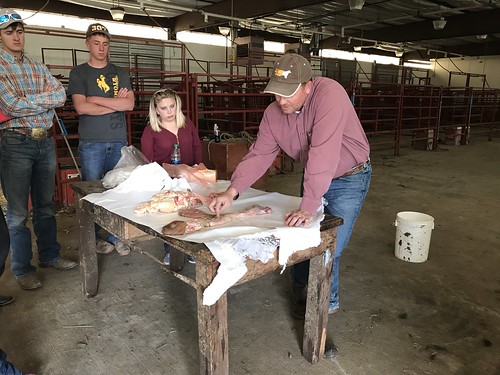
Most teenagers across the country are preparing to start a new year of school, but in Wyoming many will pull double duty by earning college credit after they close their high school books.
Wyoming 4-H is continuing its Pathways to Higher Education program, an advanced placement partnership with the University of Wyoming that gives high school students the chance to earn college credits based on their 4-H livestock programs. Now entering its second year, the program already has 20 students enrolled in the university’s College of Agriculture and Natural Resources.
Pathways to Higher Education is a three-year program that provides one to four college credits, one credit per year, with the fourth credit coming from a capstone laboratory project. The program integrates the students’ own 4-H projects in beef, poultry, rabbits, sheep, horses, goats, and swine with the university’s animal science education. Lesson objectives include nutrition, care and disease prevention, reproduction and genetics, and meat science.
4-H is the flagship youth outreach program of the federal land-grant universities’ Cooperative Extension Service, administered by USDA’s National Institute of Food and Agriculture (NIFA). 4-H provides youth hands-on learning experiences and encourages learning about the world through science, technology, engineering, and math (STEM) opportunities.
The course corresponds with the university’s traditional Introduction to Animal Science offering, except that it is geared toward high school undergraduates.
Flexibility is one of the hallmarks of the program. “Course lectures are delivered remotely via Zoom to members across the state, and laboratory experiences include hands-on educational events and activities that members can participate in with or without their animal,” said Robin Schamber, 4-H and youth development specialist with University of Wyoming Extension.
In addition to the recorded lectures on the internet, students have a wide range of options when it comes to the laboratory requirements, including studying their own animals. “If an animal gets ill, they can follow the process of diagnosis, treatment, and recovery (or not) with their vet and write it up as a lab,” Schamber said.
Pathways to Higher Education was funded in part by the Ellbogen Foundation, which also provides some scholarships to students.
NIFA invests in and advances agricultural research, education, and extension and seeks to make transformative discoveries that solve societal challenges.
